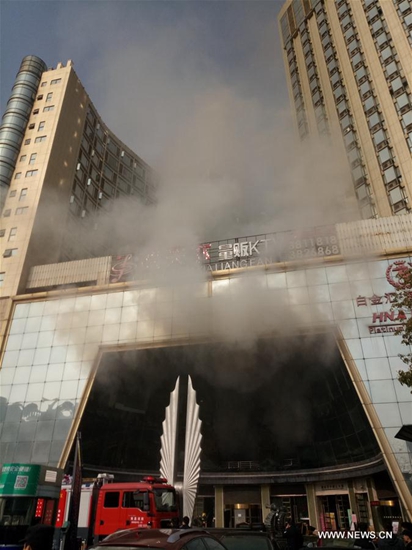UN Security Council calls for immediate investigation into recent violence in DR Congo’s Kasai region
25 February 2017 – The United Nations Security Council has strongly condemned the recent spate of violence in the south-central Kasai region of the Democratic Republic of the Congo (DRC), calling on the Government to “immediately dispatch a credible and impartial investigation.”
In a press statement issued in New York yesterday evening, the Council expressed grave concern at the recent reports of serious violations of international humanitarian law committed by local militia in that region, including unlawful recruitment and use of child soldiers, and of killings of civilians by members of Congolese security forces, known as FARDC, “all of which might constitute war crimes under international law.”
Recalling that the DRC Government bears the primary responsibility to protect civilians within its territory, the Security Council urged the authorities to “constantly exercise maximum restraint and proportionate lawful use of force in its efforts to restore order.”
The Council also called on the Government to immediately dispatch an investigation and to bring to justice and hold accountable all those responsible. Welcoming the Government’s announcement in this regard, the Council encouraged the UN Stabilization Mission in the country, known by its French acronym MONUSCO, “to provide support to the Congolese authorities, if requested, in the conduct of this investigation, developments in which they will follow very closely.”
MONUSCO was further urged to monitor and report on violations and abuses of international human rights law and violations of international humanitarian law and to update its contingency plans in this regard. In the longer-term, the Security Council encouraged the DRC Government to continue its efforts for the extension of State authority throughout the vast central African nation, ensuring credible governance with capable institutions, especially in the security sector, to prevent and deter violence.
As for the political situation in the country, the Security Council reaffirmed its strong support for the 31 December 2016 political agreement, “and its pursuit of peaceful, credible, free, fair and inclusive elections by December 2017, leading to a democratic transfer of power.”
In this context, the 15-nation body said it is “increasingly concerned” at the continuing lack of progress in the dialogue among the political stakeholders in DRC related to implementation modalities of the agreement. The Council expressed concern that, two months after the signing of the agreement, the appointment of a Prime Minister presented by the Rassemblement coalition, as well as the installation of a new transitional government and of the Comité National de Suivi de l’Accord (CNSA) have yet to take place.
As such, the Council stressed the need to maintain the political goodwill that led to the signing of the agreement in order to avoid further insecurity in the DRC. Further, the Council called on all stakeholders in the DRC, including President Joseph Kabila, the presidential majority and the opposition, to redouble, in good faith, their efforts towards a speedy conclusion of the ongoing talks on the “arrangements particuliers” of the agreement, in order to urgently nominate a Prime Minister presented by the Rassemblement.
The Security Council reaffirmed the need for all parties to support and participate constructively in the mediation led by the Conférence épiscopale nationale du Congo (CENCO), and recalled that full and timely implementation of the 31 December agreement, in accordance with the Congolese Constitution and in line with Council resolution 2277 (2016), is critical in upholding the legitimacy of the transitional institutions until elections.
